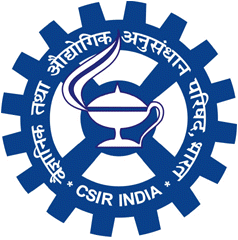Treatments Focus
Response to Macronutrients

We are what we eat. What we eat definitely affects our body composition, mass distribution within and of course a major part of our health. Have you ever observed how the same food intake affects the body differently in different people? If so, it is important to understand that not just the food we eat, but our body (the genes) and other factors contribute to the food absorption and metabolism.
What are macronutrients?
A complete diet consists of micronutrient and macronutrients. Carbohydrates, fat and protein are called macronutrients. These are the nutrients you use in the largest amounts. While micronutrients include vitamins, minerals and water.
Importance in diet
Macronutrients are essential nutrients that your body needs in large (macro) amounts to remain healthy. Macronutrients provides the body with energy, help prevent disease, and allow the body to function correctly.
The following percentage of macronutrients is suggested in your diet for good health and essential nutrition.
A balanced diet should consist of:
45–65%
carbohydrates
20–35%
fats
10–35%
protein
Most foods contain a combination of macronutrients. However, the food source should be checked in for a better or improved health results.
Carbohydrates or carbs in diet: These are considered as body’s primary fuel for energy – for your muscles and the central nervous system in daily activities and exercise. They should be consumed in considerable amounts. Food sources include:
- Commonly found in whole grains such as rice, pasta, flour and barley.
- Found in starches such as potatoes and corn.
- Other rich sources include dairy products, honey, lentils, beans and whole fruits.
Proteins in diet: Proteins are very essential to the body. Every cell in the human body is said to contain proteins. Proteins are required to repair and make new cells in your body.
- They provide structure to the tissue and includes cell members, organs, muscles, hair, skin, nails, bones, tendons, ligaments and blood plasma. They assist in maintenance of acid-base balance in our bodies.
- Important in growth years in children.
- Proportion of protein requirement changes with age and presence of health conditions.
- Food sources include: meat, fish, nuts, seeds, whole grains, beans, lentils, eggs, dairy, soy and tofu.
Fats in diet: Fat intake is essential to the body as the body does not make fat itself.
- Fats help absorb essential vitamins in our body such as vitamin A, vitamin D and vitamin E.
- One should consume healthy unsaturated fats and in moderation for a healthy outcome.
- Food sources include: Unsaturated fats are rich in avocados, fish, seeds, olive oil and nuts.
- Saturated fats are present in meat, processed or oily foods such as better and cheese.
Disorders caused by Macronutrient Deficiency
Nutrient deficiency can lead to many disorders. When a micronutrient or macronutrient proportion in diet is not efficient or up to the mark with relation to your age, body mass index and health conditions – this imbalance can lead to moderate to severe health consequences.
It is important to know that these consequences can only occur with regular nutrient imbalance in diet over a long period of time.
- Carbohydrate deficiency can cause: Diabetic ketoacidosis, hyperosmolar coma, hypoglycaemia
- Protein deficiency can cause: Kwashiorkor, marasmus and hypoalbuminemia
- Fat deficiency can cause: Heart disease, stroke, kidney problems, paediatric obesity, childhood obesity, metabolic syndrome
Common micronutrient deficiencies include iron-deficiency anemia, iodine deficiency, vitamin – D, B12 and A deficiencies, calcium deficiency, and magnesium deficiency. Insufficient water intake could lead to dehydration and kidney failure.
FAQ's :
Diet plans based on nutrigenomics rely on an analysis of your genetic makeup to inform dietary recommendations that meet your personal nutritional and health needs and help prevent nutrition-related chronic diseases.
Macro diet plans help in focusing balance of macronutrients in the diet. Some popular macro diets include Keto diet, Paleo diet, Weight Watchers diet, and IIFYM diet (IIFYM standing for “if it fits your macros”).
In children, malnutrition is not only because of lack of nutrients, there could be a genetic component responsible for it. Genetic polymorphism can cause malabsorption or other intestinal problems in children.
Precision nutrition is advised nutrition with the help of biomarkers in nutrition. This is done by using personal information from study group with similar issues and identifying a nutritional solution.
(Biomarker: A biological molecule found in blood, other body fluids, or tissues that is a sign of a normal or abnormal process, or of a condition or disease.)
References:
- What are macronutrients? MD Anderson Cancer Center. https://www.mdanderson.org/publications/focused-on-health/what-are-macronutrients-.h15-1593780.html Accessed on 28-03-2022
- Dietary Fats. American Heart Association. https://www.heart.org/en/healthy-living/healthy-eating/eat-smart/fats/dietary-fats Accessed on 28-03-2022
- Macronutrients: A simple guide to friends. Avita Health System. https://avitahealth.org/health-library/macronutrients-a-simple-guide-to-macros/ Accessed on 28-03-2022
- What Are Macros And Why Should I Be Counting Them? SCL Health. https://www.sclhealth.org/blog/2018/10/what-are-macros-and-why-should-i-be-counting-them/ Accessed on 28-03-2022
- Nutrition Basics. Washington State University. https://mynutrition.wsu.edu/nutrition-basics Accessed on 28-03-2022
Related Articles
Book an Appointment to understand how GenepoweRx can help you in treating
Response to Macronutrients
Meet The Doctors
Dr Kalyan Uppaluri
Dr Hima Challa
Your genetics … Your Test ... Your Health Success
It’s always the word of mouth that’s the best advice. Here are some of our…


Our Partners






Professional Partnerships
Government Association

